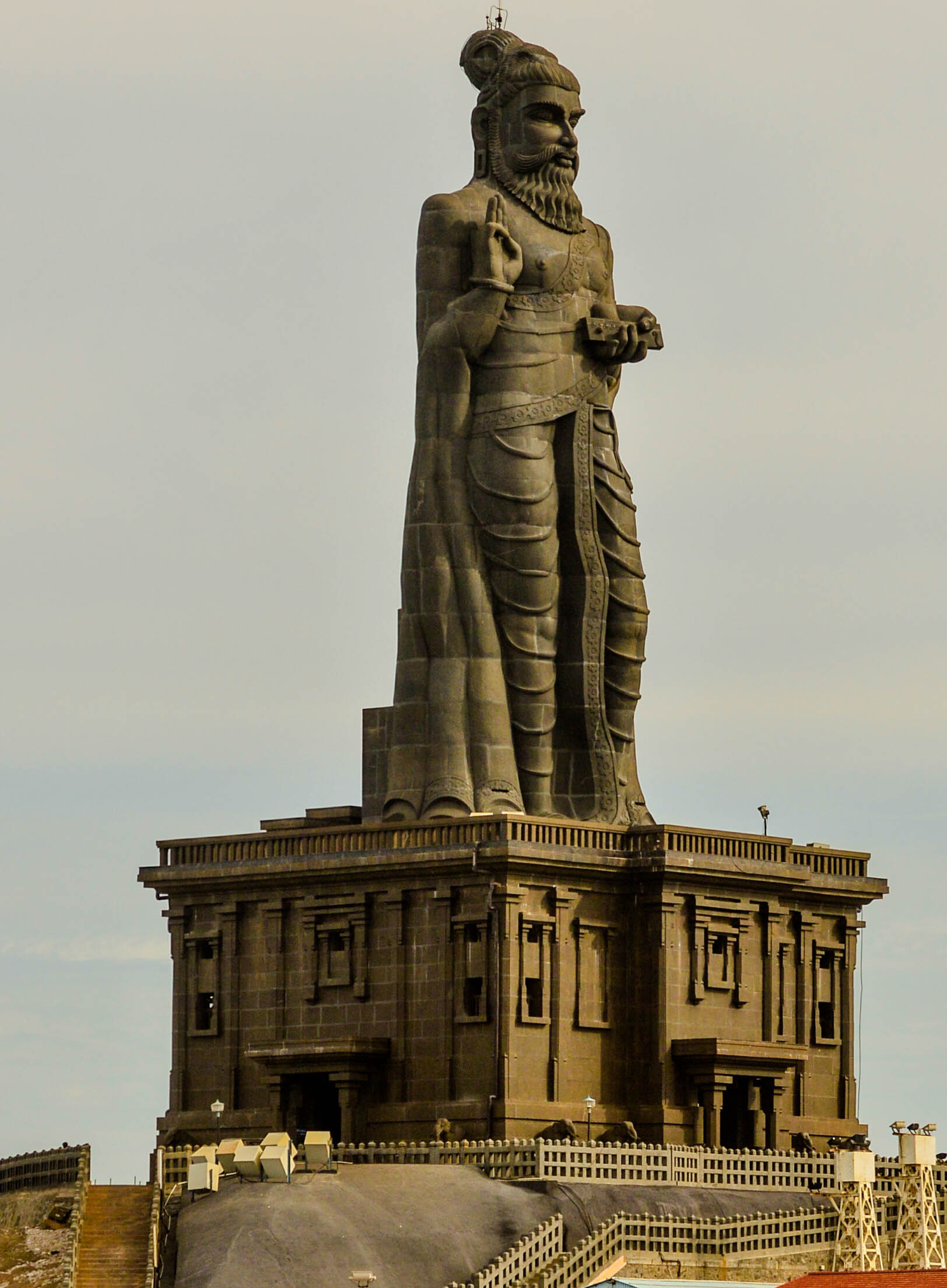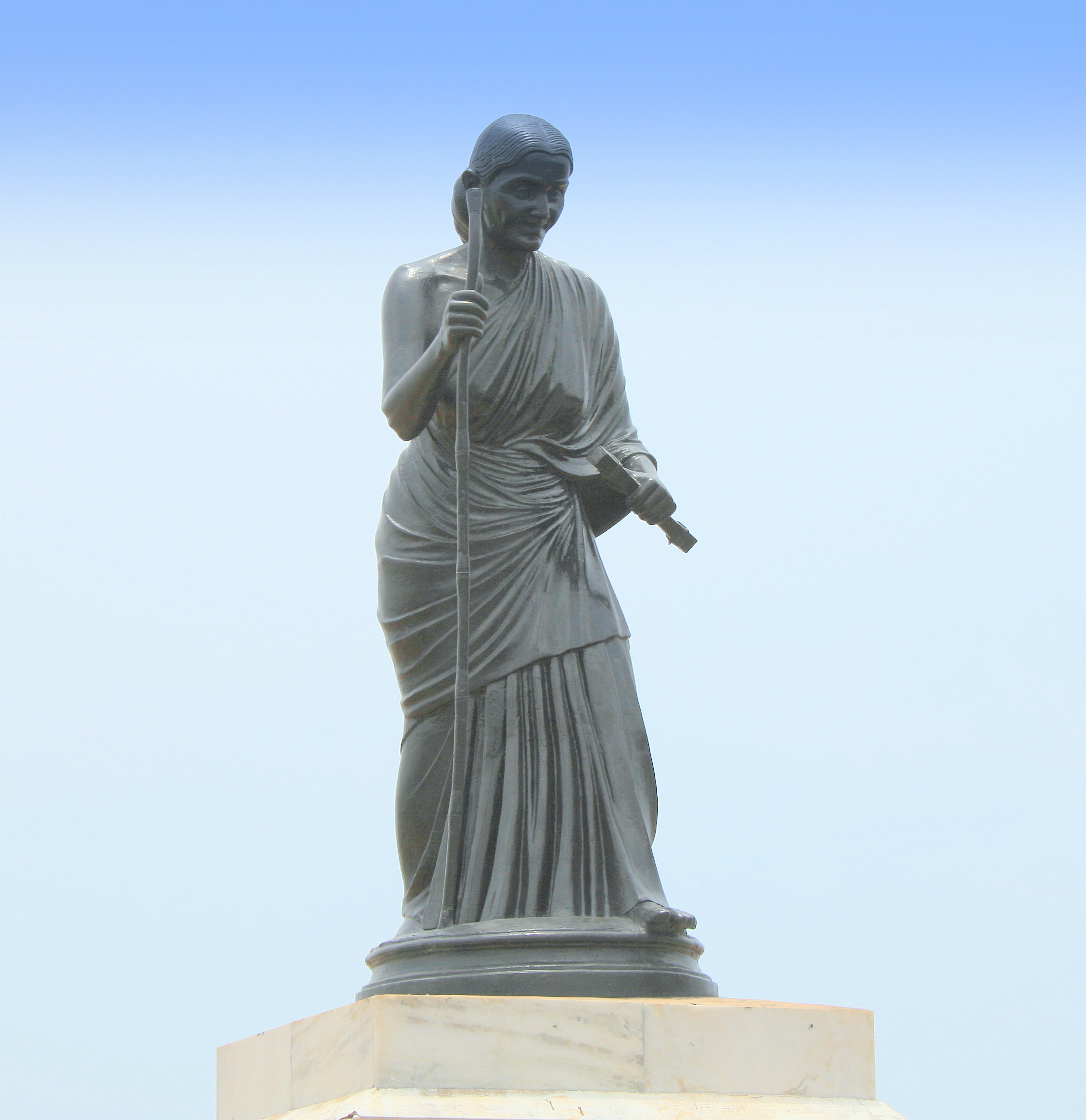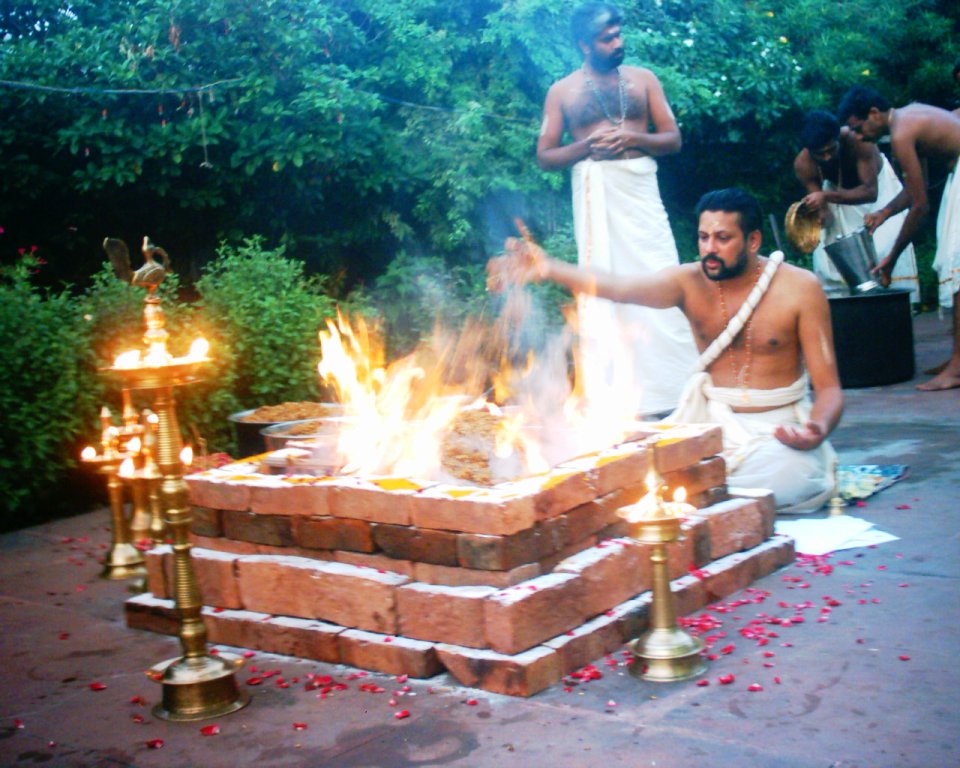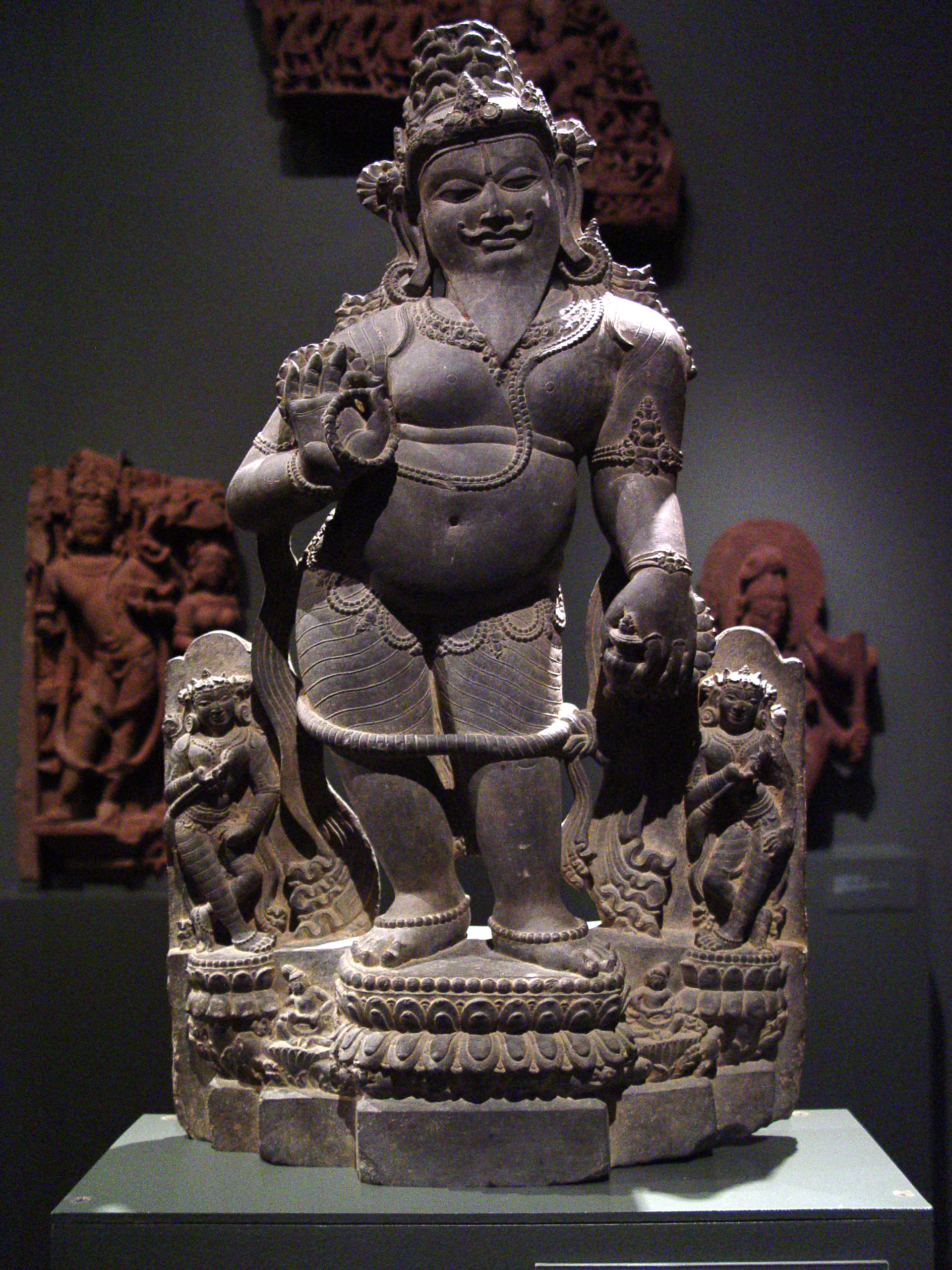|
Ponmudiyar
Ponmudiyār (Tamil: பொன்முடியார்) was a poet of the Sangam period, to whom four verses of the Sangam literature have been attributed, including verse 14 of the Tiruvalluva Maalai. Biography Ponmudiyar lived during the time of the Chera king Thagadur Erindha Peruncheral Irumporai. She was the well-wisher of the Athiyaman king Nedumananji, who is known for giving an eternal gooseberry fruit to Avvaiyar, and has written in praise of him. Contribution to the Sangam literature Ponmudiyar wrote four Sangam verses, including three in Purananuru (verses 299, 310, and 312) and one in Tiruvalluva Maalai (verse 14). Views on Valluvar and the Kural Ponmudiyar opines about Valluvar and the Kural text thus: See also * List of Sangam poets * Sangam literature The Sangam literature (Tamil language, Tamil: சங்க இலக்கியம், ''caṅka ilakkiyam''), historically known as 'the poetry of the noble ones' (Tamil language, Tamil: சா� ... [...More Info...] [...Related Items...] OR: [Wikipedia] [Google] [Baidu] |
List Of Sangam Poets
Sangam refers to the assembly of the highly learned people of the ancient Tamilakam, Tamil land, with the primary aim of advancing the literature. There is no historical evidence to suggest that there were three Sangams. It is a medieval myth propagated by the medieval writers. Sangam is a latter appellation given to the congregation of poets that often took place in ancient Pandian country, until around 300 CE, with 449 poets contributing under the patronage of 49 Pandyan dynasty, Pandyan kings. List of Sangam poets Below is a list of poets of the Sangam literature, Sangam period: See also * Third Sangam * Sangam landscape References Further reading * External links Sangam Poets and Poems {{Tamil language, state=collapsed Sangam literature Tamil-language literature Ancient Tamil Nadu Indian literature Cultural history of Tamil Nadu ... [...More Info...] [...Related Items...] OR: [Wikipedia] [Google] [Baidu] |
Tiruvalluva Maalai
Tiruvalluva Malai () is an anthology of ancient Tamil paeans containing fifty-five verses each attributed to different poets praising the ancient work of the Kural and its author Tiruvalluvar. With the poets' time spanning across centuries starting from around 1st century CE, the collection is believed to have reached its present form by 10th century CE. With the historical details of the ancient philosopher and his work remaining obscure, much of the legend on the Kural and Tiruvalluvar as they are known today are chiefly from this work. The collection also reveals the name of the author of the Kural text as 'Tiruvalluvar' for the first time, as Tiruvalluvar himself composed the Kural text centuries earlier without indicating his name anywhere in his work. Reminiscing this, E. S. Ariel, a French scholar of the 19th century, famously said of the Tirukkural thus: ''Ce livre sans nom, par un autre sans nom'' ("The book without a name by an author without a name"). History and d ... [...More Info...] [...Related Items...] OR: [Wikipedia] [Google] [Baidu] |
Tamil Language
Tamil (, , , also written as ''Tamizhil'' according to linguistic pronunciation) is a Dravidian language natively spoken by the Tamil people of South Asia. It is one of the longest-surviving classical languages in the world,. "Tamil is one of the two longest-surviving classical languages in India" (p. 7). attested since 300 BC, 300 BCE.: "...the most acceptable periodisation which has so far been suggested for the development of Tamil writing seems to me to be that of A Chidambaranatha Chettiar (1907–1967): 1. Sangam Literature – 200BC to AD 200; 2. Post Sangam literature – AD 200 – AD 600; 3. Early Medieval literature – AD 600 to AD 1200; 4. Later Medieval literature – AD 1200 to AD 1800; 5. Pre-Modern literature – AD 1800 to 1900" at p. 610 Tamil was the lingua franca for early maritime traders in South India, with Tamil inscriptions found outside of the Indian subcontinent, such as Indonesia, Thailand, and Egypt. The language has a well-documented history wit ... [...More Info...] [...Related Items...] OR: [Wikipedia] [Google] [Baidu] |
Valluvar
Thiruvalluvar commonly known as Valluvar, was a Tamil poet and philosopher. He is best known as the author of the ''Tirukkuṟaḷ'', a collection of couplets on ethics, political and economic matters, and love. The text is considered an exceptional and widely cherished work of Tamil literature. Almost no authentic information is available about Valluvar, states Kamil Zvelebil – a scholar of Tamil literature. His life and likely background are variously inferred from his literary works by different biographers. There are unauthentic hagiographic and legendary accounts of Valluvar's life, and all major Indian religions, as well as Christian missionaries of the 19th century, have tried to claim him as secretly inspired (''crypto-'') or originally belonging to their tradition. Little is known with certainty about his family background, religious affiliation, or birthplace. He is believed to have lived at least in the town of Mylapore (a neighbourhood of the present-day Chennai ... [...More Info...] [...Related Items...] OR: [Wikipedia] [Google] [Baidu] |
Sangam Women Poets
Sangam or Sangama (the Sanskrit word for confluence) may refer to: Confluence of rivers *Sangam, any confluence of two or more rivers in Indian languages *Triveni Sangam, the confluence of three rivers at Prayagraj: the Ganges, Yamuna and the mythical Saraswati *Sangama or Mekedaatu, confluence of Arkawathy and Cauvery rivers in Karnataka, India History * Legendary Tamil Sangams, legendary assemblies of Tamil scholars and poets in the remote past ** First Sangam ** Second Sangam ** Third Sangam **Sangam literature, a collection of Tamil literature and the earliest period of South Indian history, when the Tamil Sangams were held * Sangama dynasty, the first dynasty of the Vijayanagara Empire (c. 1336–1485) Places * Sangam, Akhnoor, a village in Jammu and Kashmir * Sangam, Anantnag, a village in Jammu and Kashmir * Sangam, Nellore district, a village in Andhra Pradesh * Sangam, Srikakulam district, a triveni sangam (triple confluence) in Andhra Pradesh * Sangam (Warangal distric ... [...More Info...] [...Related Items...] OR: [Wikipedia] [Google] [Baidu] |
Sangam Poets
Sangam or Sangama (the Sanskrit word for confluence) may refer to: Confluence of rivers *Sangam, any confluence of two or more rivers in Indian languages * Triveni Sangam, the confluence of three rivers at Prayagraj: the Ganges, Yamuna and the mythical Saraswati *Sangama or Mekedaatu, confluence of Arkawathy and Cauvery rivers in Karnataka, India History * Legendary Tamil Sangams, legendary assemblies of Tamil scholars and poets in the remote past ** First Sangam ** Second Sangam ** Third Sangam **Sangam literature, a collection of Tamil literature and the earliest period of South Indian history, when the Tamil Sangams were held * Sangama dynasty, the first dynasty of the Vijayanagara Empire (c. 1336–1485) Places * Sangam, Akhnoor, a village in Jammu and Kashmir * Sangam, Anantnag, a village in Jammu and Kashmir * Sangam, Nellore district, a village in Andhra Pradesh * Sangam, Srikakulam district, a triveni sangam (triple confluence) in Andhra Pradesh * Sangam (Warangal distri ... [...More Info...] [...Related Items...] OR: [Wikipedia] [Google] [Baidu] |
Tamil Philosophy
Tamil may refer to: People, culture and language * Tamils, an ethno-linguistic group native to India, Sri Lanka, and some other parts of Asia **Sri Lankan Tamils, Tamil people native to Sri Lanka ** Myanmar or Burmese Tamils, Tamil people of Indian origin settled in Burma/Myanmar primarily during the British period ** Tamil Malaysians, Tamil people of Indian origin settled to Malaysia ** Singapore Tamils, Tamil people of Indian origin settled in Singapore ** Tamil diaspora, descendants of Tamil immigrants living outside of India and Sri Lanka * Tamil language, the native language of the Tamils * Tamiloid languages, Dravidian languages related to Tamil, spoken in India * Tamil script, the writing system of the Tamil language ** Tamil (Unicode block), a block of Tamil characters in Unicode * Tamil dialects, referencing geographical variations in speech * Tamil culture, culture of the Tamil people * Tamil cuisine, cuisine of the Tamil people * Tamil cinema (other) **Tamil ... [...More Info...] [...Related Items...] OR: [Wikipedia] [Google] [Baidu] |
Kural Text
The ''Tirukkuṟaḷ'' (), or shortly the ''Kural'' (), is a classic Tamil language text on commoner's morality consisting of 1,330 short couplets, or kurals, of seven words each. The text is divided into three books with aphoristic teachings on virtue ( ''aram''), wealth ( ''porul'') and love ( ''inbam''), respectively. It is widely acknowledged for its universality and secular nature. Its authorship is traditionally attributed to Valluvar, also known in full as Thiruvalluvar. The text has been dated variously from 300 BCE to 5th century CE. The traditional accounts describe it as the last work of the third Sangam, but linguistic analysis suggests a later date of 450 to 500 CE and that it was composed after the Sangam period. The Kural text is among the earliest systems of Indian epistemology and metaphysics. The work is traditionally praised with epithets and alternative titles, including "the Tamil Veda" and "the Divine Book." Written on the ideas of ''ahimsa'', it ... [...More Info...] [...Related Items...] OR: [Wikipedia] [Google] [Baidu] |
Avvaiyar (Sangam Poet)
Avvaiyar (Tamil: ஔவையார்) was a Tamil poet who lived during the Sangam period and is said to have had cordial relations with the Tamil chieftains Vēl Pāri and Athiyamān. She wrote 59 poems in the Puṟanāṉūṟu. A plaque on a statue of the poet in Chennai suggests the first century BCE for her birthdate. The name Avvaiyar means a 'respectable good woman', hence a generic title; her personal name is not known. Biography Avvaiyar is considered to be contemporary to poets Paranar, Kabilar and Thiruvalluvar. She is attributed as the author of 7 verses in Naṟṟiṇai, 15 in Kuṟuntokai, 4 in Akanaṉūṟu and 33 in Puṟanāṉūṟu. Legend states that she was a court poet of the rulers of the Tamil country. She travelled from one part of the country to another and from one village to another, sharing the gruel of the poor farmers and composing songs for their enjoyment. Most of her songs were about a small-time chieftain Vallal Athiyamaan Nedumaa ... [...More Info...] [...Related Items...] OR: [Wikipedia] [Google] [Baidu] |
Purananuru
The ''Purananuru'' (, literally "four hundred [poems] in the genre puram"), sometimes called ''Puram'' or ''Purappattu'', is a classical Tamil literature, Tamil poetic work and traditionally the last of the Eight Anthologies (''Ettuthokai'') in the Sangam literature. It is a collection of 400 heroic poems about kings, wars and public life, of which two are lost and a few have survived into the modern age in fragments. The collected poems were composed by 157 poets, of which 14 were anonymous and at least 10 were women. This anthology has been variously dated between 1st century BCE and 5th century CE, with Kamil Zvelebil, a Tamil literature scholar, dating predominantly all of the poems of ''Purananuru'' sometime between 2nd and 5th century CE. Nevertheless, few poems are dated to the period of 1st century BCE. The ''Purananuru'' anthology is diverse. Of its 400 poems, 138 praise 43 kings – 18 from the Chera dynasty, 13 Chola dynasty kings, and 12 Early Pandya dynasty kings. ... [...More Info...] [...Related Items...] OR: [Wikipedia] [Google] [Baidu] |
Sangam Period
The Sangam literature ( Tamil: சங்க இலக்கியம், ''caṅka ilakkiyam''), historically known as 'the poetry of the noble ones' ( Tamil: சான்றோர் செய்யுள், ''Cāṉṟōr ceyyuḷ''), connotes the early classical Tamil literature and is the earliest known literature of South India. The Tamil tradition links it to legendary literary gatherings around Madurai in the ancient Pandya kingdom. It is generally accepted by most scholars that the historical Sangam literature era, also known as the Sangam period, spanned from 100 BCE to 250 CE, on the basis of linguistic, epigraphic, archaeological, numismatic and historical data; though some scholars give a broader range of 300 BCE to 300 CE. The Eighteen Greater Texts (Patiṉeṇmēlkaṇakku), along with the Tamil grammar work Tolkappiyam, are collectively considered as Sangam literature. These texts are classified into the Ettuttokai (Eight Anthologies) and Pattupattu (T ... [...More Info...] [...Related Items...] OR: [Wikipedia] [Google] [Baidu] |
Gooseberry
Gooseberry ( or (American and northern British) or (southern British)) is a common name for many species of ''Ribes'' (which also includes Ribes, currants), as well as a large number of plants of similar appearance, and also several unrelated plants (see List of gooseberries). The berries of those in the genus ''Ribes'' (sometimes placed in the genus ''Grossularia'') are edible and may be green, orange, red, purple, yellow, white, or black. Etymology The ''goose'' in ''gooseberry'' has been mistakenly seen as a corruption of either the Dutch language, Dutch word or the allied German language, German , or of the earlier forms of the French language, French . Alternatively, the word has been connected to the Middle High German ('curl, crisped'), in Latin as . However, the ''Oxford English Dictionary'' takes the more literal derivation from ''goose'' and ''berry'' as probable because "the grounds on which plants and fruits have received names associating them with animals ... [...More Info...] [...Related Items...] OR: [Wikipedia] [Google] [Baidu] |







